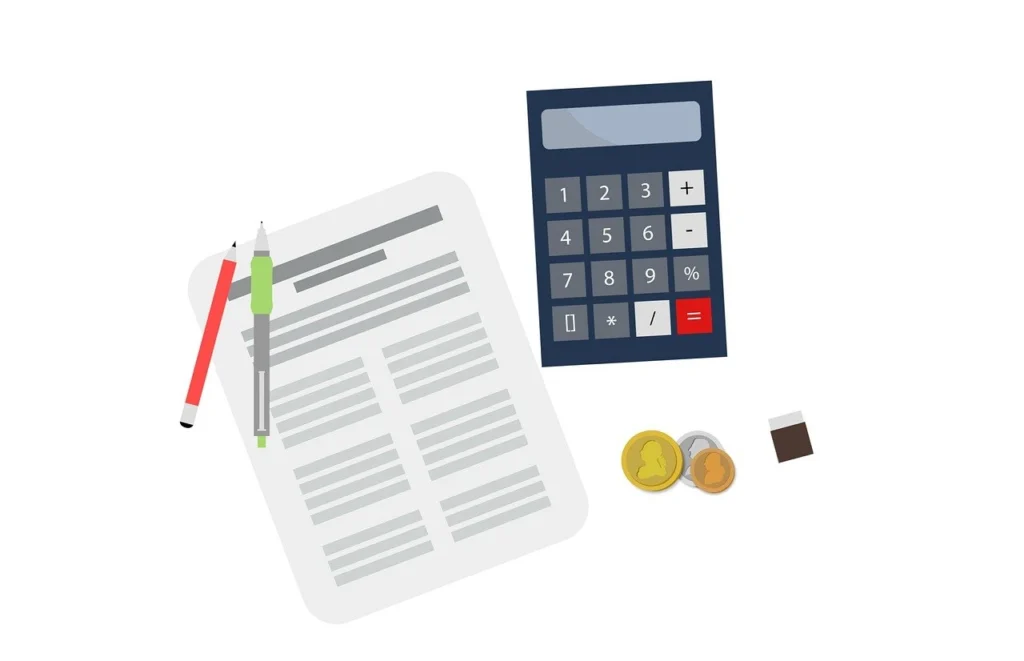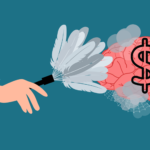Change Your Financial Habits and do your financial goals always seem just out of reach? Good news: changing a few financial habits can help. This article will show you how to improve your money management and reach your dreams sooner.
Good financial habits can change your life. They help you save more, reduce stress, and build a strong future. They also let you invest in what’s important to you. Whether it’s paying off debt, buying a home, or having more financial freedom, changing your habits is key.
We’ll cover strategies to understand your financial behaviors, make a budget, and build wealth. By the end, you’ll know how to manage your money better and reach your financial goals faster.
Key Takeaways
- Changing your financial habits is the key to achieving your goals faster
- Adopting good financial practices can lead to increased savings, reduced stress, and improved financial security
- This article will guide you through a step-by-step process to transform your relationship with money
- You’ll learn how to identify your current financial behaviors, create a realistic budget, and develop sustainable wealth-building practices
- By the end of this article, you’ll have the tools and knowledge to take control of your finances and accelerate your progress towards your most important financial goals
Understanding Your Current Financial Behavior Patterns
To change your financial habits, start by understanding your spending and saving. Find out what makes you spend money without thinking. This will guide you toward achieving your financial goals.
Identifying Spending Triggers and Habits
Look closely at how you spend money. Notice what makes you spend impulsively. Is it when you’re stressed, bored, or celebrating? Knowing these triggers helps you manage your spending better. According to Psychology Today, understanding emotional triggers can be an effective strategy for curbing impulsive spending. Psychology Today – The Psychology of Emotional Spending.
Analyzing Your Money Mindset
Your thoughts about money greatly affect how you handle it. Think about how your upbringing and experiences shape your money mindset. Spotting any negative beliefs about money can help you change your approach to finances. The Financial Planning Association highlights how different money mindsets influence financial decision-making, and how recognizing them can help improve your relationship with money. FPA – Money Mindset.
Recognizing Financial Blind Spots
- Review your spending habits and categorize your expenses to identify areas where you might be overspending. Look for areas where you might be missing important financial duties.
- Look over your credit report for any debts or errors that could harm your finances.
- See if your emergency fund is big enough to cover unexpected costs. This fund is key to keeping your finances safe.
Understanding your current financial habits helps you make better choices. It prepares you to create a plan that improves your money management.
How to Change Your Financial Habits: A Step-by-Step Approach

Changing your financial habits can really help you reach your goals quicker. It’s essential to approach it one step at a time. This guide will show you how to improve your money management and achieve long-term success.
First, identify your specific financial goals. It could be paying off debt, saving for a house, or growing your wealth. Having clear goals will motivate you to make lasting changes.
- Create new, positive financial routines. This might mean setting aside time each week to check your budget. You could also automate savings or wait 24 hours before buying something on impulse.
- Develop accountability systems to stay on track. This could be as simple as telling a trusted friend about your goals. Or joining a supportive online group.
- Be patient and celebrate small wins. Changing habits takes time. So, it’s important to recognize and celebrate your progress.
Remember, how to change your financial habits is not the same for everyone. Experiment with various approaches to discover what suits you best. With commitment and consistency, you can develop good financial habits that will last for years.
Creating a Realistic Budget That Actually Works
Budgeting is key to reaching your financial goals, but it can be tough. The goal is to make a budget that fits your lifestyle and spending. By following a few steps, you can create a budget that helps you save money.

Building Your First Monthly Budget
First, track your income and expenses for a few weeks or a month. This will show you where your money goes. Then, sort your expenses into must-haves (like rent and groceries) and nice-to-haves (like dining out). This helps you find ways to save money.
Setting Up Automated Savings Systems
- Set up automatic transfers from your checking account to a separate savings account to automate your savings. This “pay yourself first” method ensures you prioritize your savings goals before you’re tempted to spend the money.
- Consider using tools like digital savings apps or online bank features to simplify the process and make it easier to stick to your savings plan.
Tracking Expenses Effectively
It’s important to keep track of your expenses to stay on budget. Use a budgeting app, spreadsheet, or even pen and paper to record your spending. Regularly check your budget and adjust it if needed to stay on track.
| Budgeting Strategies | Key Benefits |
|---|---|
| Creating a Realistic Monthly Budget | Gain control over your finances and identify areas for improvement |
| Automating Savings | Effortlessly build your savings and reach your financial goals |
| Tracking Expenses Effectively | Maintain accountability and make informed decisions about your spending |
By applying these budgeting techniques, you can create a budget tailored to your needs. Stay patient, keep experimenting, and be open to making adjustments along the way.
Breaking the Cycle of Impulsive Spending
Impulsive spending can block your way to reaching your financial goals. It’s a common habit that many find hard to beat. But, with the right strategies, you can take control of your spending. We’ll look at ways to stop making impulsive buys and manage your money better.

Identify Your Spending Triggers
To stop impulsive spending, first find out what makes you buy things on a whim. Think about when you tend to overspend. Is it when you’re bored, stressed, or see sales? Knowing these triggers helps you plan how to avoid or handle them.
Create a Cooling-off Period
When you feel like buying something on impulse, wait a bit. Try waiting 24-48 hours or even a week. Ask yourself if you really need it and if it fits your financial goals. This simple step can prevent you from making purchases you might later regret.
Develop a Mindful Spending Habit
Being mindful about spending can change your spending habits. Before buying, pause and ask yourself a few questions:
- Do I need this item, or is it just a want?
- How will this purchase impact my overall financial well-being?
- Is there a more affordable alternative that could meet my needs?
Reflecting on your spending can lead to more thoughtful choices. This way, you can focus on what’s truly important to your finances.
Automate Your Savings
Automating your savings can help you avoid impulsive spending. Set up automatic transfers from your checking to a savings account right after you get paid. This way, you save money before you can spend it on impulse.
By using these strategies, you can stop impulsive spending and work towards your financial goals. Changing your spending habits takes time and effort. But with persistence, you can develop better habits and improve your financial future.
Building Sustainable Wealth Through Smart Money Decisions
To achieve long-term financial security, you need a smart money plan. By following a few key principles, you can start building wealth. Let’s look at some effective ways to invest, plan for emergencies, and manage debt to reach your financial goals.
Investment Strategies for Long-term Growth
Diversifying your investments is key for long-term wealth. Mix low-cost index funds, stocks, and bonds to balance risk and returns. Also, contribute regularly to retirement accounts like a 401(k) or Roth IRA for growth and tax benefits.
Emergency Fund Planning Guidelines
- Aim to save 3-6 months’ worth of living expenses in a savings account.
- Check your emergency fund often and adjust it as your expenses or income change.
- Focus on building your emergency fund before paying off debt or investing.
Debt Management Techniques
Managing your debt well is crucial for building wealth. First, make a debt repayment plan, focusing on high-interest debt. Consider consolidating loans into one with lower interest to simplify payments. Also, try negotiating with creditors or seek debt counseling if needed.
| Strategy | Benefit |
|---|---|
| Diversified Investment Portfolio | Balances risk and potential returns for long-term growth |
| Automated Retirement Account Contributions | Takes advantage of compounding growth and tax-advantaged benefits |
| Debt Consolidation and Negotiation | Simplifies payments and reduces interest costs |
By using these smart money decisions, you can build lasting wealth and reach your financial goals. Remember, being consistent and disciplined is crucial for building wealth, emergency fund planning, and saving money tips.
Conclusion
Changing your financial habits is key to reaching your goals faster. It helps you build a strong financial future. By understanding your spending, changing your money mindset, and using a budget, you can control your finances.
The path to financial change is not simple. But with hard work and staying consistent, you can change your money habits. Celebrate your small wins and keep your big financial goals in mind.
This article has given you the tools to how to change your financial habits and set financial goals. Start this journey and see your financial future become clear and confident.
FAQ
What are the key steps to changing my financial habits?
To change your financial habits, start by understanding your spending and savings. Then, set clear financial goals. Next, make a budget and savings plan that works for you.
Develop new ways to manage money and regularly check your progress. This will help you stay on track.
How can I stop impulsive spending and stick to my budget?
To stop impulsive spending, first, know what triggers your spending. Use mindfulness to pause before buying. Try using cash instead of cards to feel the money.
Also, wait 24 hours or 30 days before buying non-essentials. Make saving automatic to ensure it’s always done.
What are some effective ways to build an emergency fund?
To build an emergency fund, start by setting a savings goal. Aim for 3-6 months’ living expenses. Automate savings from each paycheck.
Reduce spending on things you don’t need and put that money into savings. Never use your emergency fund for non-essential things.
How can I create a budget that actually works for me?
First, track your spending to see where you can cut back. Then, sort your expenses into fixed, variable, and discretionary categories.
Set spending limits for each category based on your goals. Automate savings and bills. Regularly review and adjust your budget as needed.
What are some effective investment strategies for long-term wealth building?
For long-term wealth, diversify your investments across stocks, bonds, and real estate. Regularly contribute to retirement accounts for growth.
Consider low-cost index funds or ETFs for broad market exposure. Always seek advice from a financial advisor for a tailored plan.








